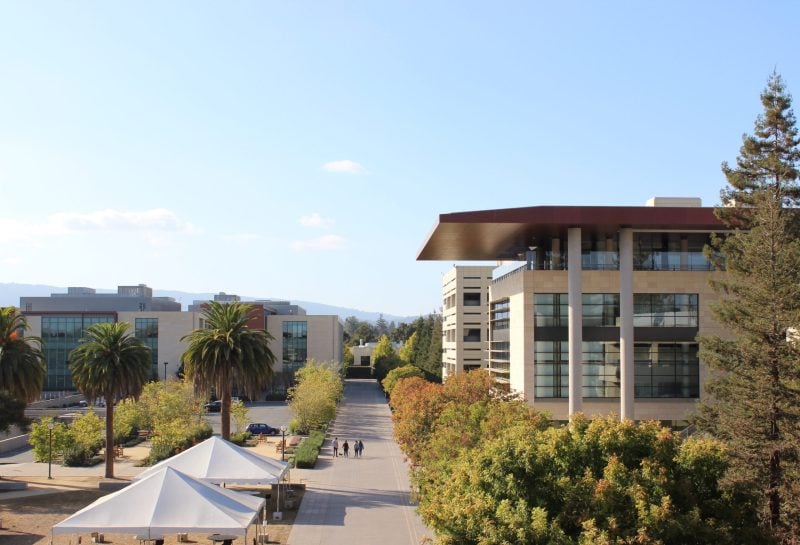As health professional students, staff, faculty, and alumni across Stanford School of Medicine, Stanford Health Care, and Stanford Children’s Health, we support establishing the strongest possible guardrails in the University’s relationship with the fossil fuel industry. Our support for these guardrails stems from our extensive historical experience in medicine with the role of unchecked industry influence on honest scientific inquiry. Climate change, driven by the burning of fossil fuels is also profoundly a crisis of health and equity. Without guardrails, the University essentially signals to the fossil fuel industry that business as usual is acceptable. Business as usual is already harming the health of our patients and communities, and stands to grow worse without a significant course correction in our emissions.
Climate change is the greatest threat to global health of the 21st century. The science is clear: we need a rapid transition off fossil fuels to avert the worst impacts of climate change and to protect our health and our future. We are already seeing more pregnant individuals experiencing premature birth due to extreme heat exposure, more children arriving with respiratory complaints from poor air quality days, more episodes of cardiovascular events like strokes and heart attacks from both heat and wildfires, and a worsening mental health crisis in part driven by climate change and understandable concern about the future. All of these health impacts are deeply inequitable. In the United States they most impact low-income communities and communities of color. Globally they most impact the developing countries which did the least to contribute to the problem.
Pollution from fossil fuels (e.g., exhaust from cars and trucks, emissions from gas stoves) is also a significant source of air pollution that is making our patients sick right now. Twenty percent of premature deaths globally — that’s 1 in 5 — are attributable to exposure to air pollution caused by combustion of fossil fuels. This pollution disproportionately affects poorer communities and Black and Hispanic communities, contributing to the long history of environmental racism in the U.S.
The fossil fuel industry continues to slow progress on climate solutions and to sow doubt about climate change. The State of California recently filed a lawsuit against Chevron, Exxon, BP, ConocoPhillips, and Shell cataloging how long industry leaders have known about the dangers of fossil fuels, how these companies suppressed this information from the public and policy-makers, and how they have historically and continue to fund misinformation campaigns to slow the transition off fossil fuels.
As the Doerr School of Sustainability seeks to fulfill its mission of developing “high-impact solutions to pressing planetary challenges”, accepting funding from fossil fuel companies will stymie rather than facilitate this aim. As health professionals, we’ve seen a very similar situation before with Big Tobacco, which heavily influenced research to achieve pro-industry results prior to the enactment of strict regulations and guardrails. When the science became clear on the links between tobacco and lung cancer, Big Tobacco engaged in a campaign to cast doubt on the science. The same is true for the pharmaceutical industry, where evidence shows that pharmaceutical industry funding of clinical researchers is strongly associated with pro-industry results as well as evidence of trial design and publication bias. Companies like Exxon followed a similar playbook. This likely occurs through multiple mechanisms, including subtle favoritism and overt “ghost management” of studies. If the Doerr School accepts funding from the fossil fuel industry without guardrails, history has taught that industry interests will prevail over the mission of the school to solve the climate crisis.
With the future existence of humanity itself on the line, we must ensure every dollar spent toward seeking solutions for the climate crisis is used in an ethical and productive manner. To protect health, we support the plan for basic guardrails forwarded by six graduate students at Stanford who have varying opinions on industry dollars but agree that rules should be in place to protect the integrity of research. At a minimum, this requires ensuring that companies who provide research dollars are adhering to credible transition plans off fossil fuels, are making the data for their transition transparent and available, and are not engaging in or funding anti-renewable or misinformation campaigns. Big Oil companies have stated that they stand ready to address the crisis. We have the ability to hold them to their promises by not providing false cover in the form of academic partnerships with elite institutions like Stanford.
If we are to solve the climate crisis and protect the health of this generation and the generations to come, we need to act with a clear moral compass on the path forward. We call on leaders at Stanford to act, understanding that the health of current and future generations is on the line.
Dr. Michele Barry is the Director of the Center for Innovation in Global Health, a Professor of Medicine and a Senior Fellow at the Woods Institute.
Dr. Desiree LaBeaud is a Professor of Pediatrics (Infectious Diseases), a Senior Fellow at the Woods Institute, a Professor by courtesy of Epidemiology and Population Health, and a Professor by courtesy of Environmental Social Science at the Stanford Doerr School of Sustainability
Dr. Lisa Patel is a Clinical Associate Professor of Pediatrics and the Executive Director of the Medical Society Consortium on Climate and Health
Jonathan Lu is the Co-Director of Stanford Climate and Health and a fifth-year student at the Stanford School of Medicine
Dr. Debra Safer is an Associate Professor of Psychiatry and Behavioral Sciences
Dr. Wendy Bernstein is an Adjunct Clinical Instructor in Psychiatry and Behavioral Science
This letter was endorsed by an additional 86 signatories.
